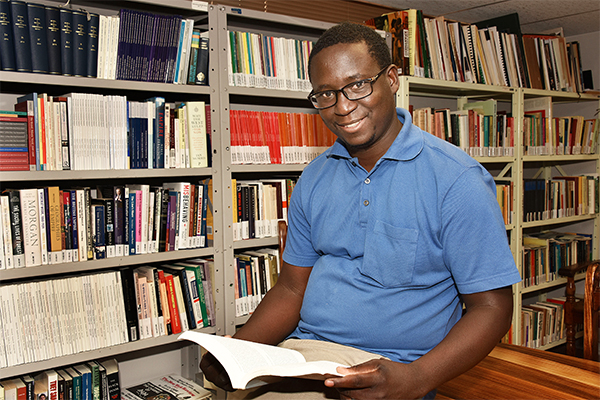Latest News Archive
Please select Category, Year, and then Month to display items
24 September 2024
|
Story Aimée Barlow
|
Photo Supplied
 Louzanne Coetzee, who made history by clinching South Africa’s second medal at the Paralympics, earning a bronze in the T11 1 500 m women’s final with a personal best time, received a warm reception when she recently returned home.
Louzanne Coetzee, who made history by clinching South Africa’s second medal at the Paralympics, earning a bronze in the T11 1 500 m women’s final with a personal best time, received a warm reception when she recently returned home.
The celebrated Paralympic bronze medallist Louzanne Coetzee returned home to a warm welcome at the Bram Fischer International Airport on 10 September 2024.
Family, friends, colleagues, Arista students, and media gathered to celebrate her remarkable achievement and show their support.
Coetzee – KovsieSport Coordinator of Parasport at the University of the Free State (UFS) – made history by clinching South Africa’s second medal at the Paralympics, earning a bronze in the T11 1 500 m women’s final with a personal best time. Her dedication and hard work have not only brought her personal glory but have also inspired many in her community.
Among those present to welcome her was Jerry Laka, Director of KovsieSport, who expressed his pride in Coetzee’s accomplishments.
"We as KovsieSport are so proud of our colleague Coetzee. It is amazing to see a product of KovsieSport achieving greatness on the world stage. She is truly an inspiration to us all," said Laka.
“I am so glad to be back, and to have Laka and my colleagues here. It means the world to me. Having Laka here shows his commitment to my career and ParaSport and his staff in general,” shared Coetzee, her gratitude evident.
She further expressed her appreciation for the support she received, stating, “I don’t have the words to describe how thankful I am for the support from the UFS community.”
Coetzee’s return is a proud moment for South Africa and the University of the Free State (UFS) community. Welcome home, Louzanne! Your achievements have made us all proud!
Land a fertile field for historians
2017-12-25

Dr Admire Mseba, historian and researcher in the International Studies Group (ISG).
Photo: Charl Devenish
The use of land and the economics of Southern Africa at present is a contentious subject at almost every level of society. A historian and researcher who revels in happenings in these two areas, is Dr Admire Mseba, a postdoctoral research fellow in the International Studies Group (ISG) at the UFS.
Dr Mseba grew up in the Mberengwa region in southern Zimbabwe, known for cattle farming and mineral mining. While at the University of Zimbabwe, he became interested in economic history and archaeology, and completed his PhD at the University of Iowa in the USA. During his time there, Dr Mseba also became passionate about environmental history.
A historian's ability to think and engage critically on diverse subjects drew Dr Mseba to his field. Currently, he is busy with three research projects. Firstly, he is working on a book on social relations, about access to land in Zimbabwe. He is also examining regional and national efforts to control migratory pests during the 20th century, in particular, the red locust. In collaboration with a colleague at the ISG, Dr Mseba is also researching monetary systems in central Africa, covering the present-day countries of Zimbabwe, Malawi, and Zambia.
Dr Mseba believes future research opportunities in the domains of economic and environmental history abound. For one, the land question has been very topical in Zimbabwe for more than a decade—as it is now in South Africa—and needs more scrutiny. Regarding agrarian pestilences, he indicates the recent phenomenon of armyworm invasion. “There are so many opportunities for historians to investigate. There are so many ways to think about these things and trying to put it in perspective.”